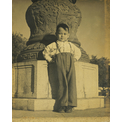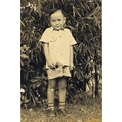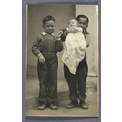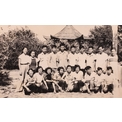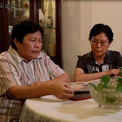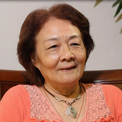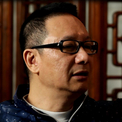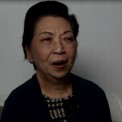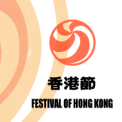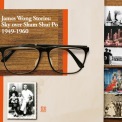-
History & Society
- Education in Pre-war Hong Kong
- History of Taikoo Sugar Refinery
- Hong Kong Products Exhibition
- Local Festivals Around the Year
- Post-war Industries
- Pre-war Industry
- The Hong Kong Jockey Club Archives
- Tin Hau Festival
- Memories We Share: Hong Kong in the 1960s and 1970s
- History in Miniature: The 150th Anniversary of Stamp Issuance in Hong Kong
- A Partnership with the People: KAAA and Post-war Agricultural Hong Kong
- The Oral Legacies (I) - Intangible Cultural Heritage of Hong Kong
- Hong Kong Currency
- Hong Kong, Benevolent City: Tung Wah and the Growth of Chinese Communities
- The Oral Legacies Series II: the Representative List of the Intangible Cultural Heritage of Hong Kong
- Braving the Storm: Hong Kong under Japanese Occupation
- A Century of Fashion: Hong Kong Cheongsam Story
Geography & EnvironmentArt & Culture- Calendar Posters of Kwan Wai-nung
- Festival of Hong Kong
- Ho Sau: Poetic Photography of Daily Life
- Hong Kong Cemetery
- Sketches by Kong Kai-ming
- The Culture of Bamboo Scaffolding
- The Legend of Silk and Wood: A Hong Kong Qin Story
- Journeys of Leung Ping Kwan
- From Soya Bean Milk To Pu'er Tea
- Applauding Hong Kong Pop Legend: Roman Tam
- 他 FASHION 傳奇 EDDIE LAU 她 IMAGE 百變 劉培基
- A Eulogy of Hong Kong Landscape in Painting: The Art of Huang Bore
- Imprint of the Heart: Artistic Journey of Huang Xinbo
- Porcelain and Painting
- A Voice for the Ages, a Master of his Art – A Tribute to Lam Kar Sing
- Memories of Renowned Lyricist: Richard Lam Chun Keung's Manuscripts
- Seal Carving in Lingnan
- Literary Giant - Jin Yong and Louis Cha
-
History & SocietyGeography & EnvironmentArt & Culture
-
View Oral History RecordsFeatured StoriesAbout Hong Kong Voices
-
Hong Kong MemoryApplauding Hong Kong Pop Legend: Roman TamRecently Visited
The Charismatic Musical Life of Roman Tam
“In my life, I love to sing. I sing until my voice of my songs flies.”
(Translation of extracted lyrics from In My Life, published in 1983. Composed by Roman Tam; lyrics by Cheng Kok-kong.)On vinyl, tape and compact disc, and now on all sorts of emerging media, Roman’s voice – powerful, expressive and full of emotion – has always lingered in the ears of the listener, and the notes of each and every one of his golden classics still beat in our hearts. Roman’s life in performing arts began with English pop songs. He began to seize public attention with his Mandarin pop performances and reached the height of his career with Cantopop. His artistic talents then extended to the musical stage. Hong Kong’s pop music culture has constantly flowed and changed over the past three decades, but Roman was a courageous figure who, in his constant pursuit of beauty and improvement, was always able to stay ahead of his time and who never stopped innovating and leading. His voice was strong and sonorous, he always sang with perfect pronunciation, and he performed on stage as free as he wished. These were the personal signatures of Roman that helped establish his status as an icon on the Hong Kong pop scene.
Roman was born in Baise of Guangxi in 1945. His parents named him “Pak Sin”. Roman was first brought to Hong Kong by his parents in 1948 during the Chinese Civil War, but the family moved back to Guangzhou in 1950. Roman developed a passion for singing and performing as a child, learning folk dance in his junior secondary school years and later joining the amateur dance team of Guangzhou’s Youth Cultural Palace. He was also very fond of Cantonese opera, studying under the master Law Ka-shue (known as “King of the Gongs”) and harbouring a dream to become a famous Cantonese opera actor. Roman then came back to Hong Kong from Guangzhou on his own in 1962. A new immigrant, he took up various entry-level jobs, finding employment as a gatekeeper at the Lai Chi Kok Amusement Park and then as a bank clerk. Thanks to his passion for music and the stage and his determination to succeed, Roman eventually earned superstar status in Hong Kong.
Timeline of Roman Tam’s journey to stardom 1945 Born in Baise, Guangxi, China. 1956 Joined the amateur dance team of Guangzhou’s Youth Cultural Palace. 1962 Moved from Guangzhou to Hong Kong. Joined the band T.N.T. after work. 1964 Entered and came third in the singing contest for the film The Shepherd Girl organised by Shaw’s Film Fan Club. His talent was recognised by renowned composer Wang Fuling, who recommended him to take up backstage singing and record film songs. 1968 Formed his own group “Roman and the Four Steps” to perform English pop songs in bars and lounges. Recorded two EPs. 1971 Formed “Lover’s Duet” with film and TV star Lydia Sum. 1973 “Lover’s Duet” split up. 1974 Signed for a Japanese music label and began three years vocal training in Japan. 1975 Entered and won the “Champion Award of Japan for Singers” organised by Yomiuri Telecasting Corporation in Japan, becoming the first non-Japanese singer to be crowned champion in the competition. 1976 Sang the theme song to TVB’s dubbed Japanese drama Bright Future. The Cantonese cover version became a household tune and established Roman’s status as a pop star. 1977 Sang the theme song to contemporary TV drama series A House Is Not A Home. 1978 Sang the theme song to the much-loved TV costume drama series The Romantic Swordsman, which took Hong Kong and overseas Chinese markets by storm.
Held his first pop concert at the Lee Theatre.1979 Became the first Hong Kong artiste to perform at the Royal Albert Hall in London.
Was invited to hold solo pop concerts at Madison Square Garden in New York, U.S. and the O’Keefe Centre in Canada.
Sang the theme song to the RTHK TV drama series Below The Lion Rock – a classic that remains hugely popular today.1980 Became the first Hong Kong artiste to perform a pop concert at the Lincoln Center, New York. 1981 Founded and financed “Paiyishe” to nurture talented youngsters with a passion for dance. 1982 Solely funded and produced Hong Kong’s first Cantonese musical, Legend Of The White Snake, at the Lee Theatre, which ran for 22 shows. 1983 Was named one of “Ten Outstanding Young Persons”. 1984 Solely funded and produced a second Cantonese musical, Liuyi’s Letter, at the Lee Theatre, which ran for 25 shows. 1985 Was invited by the Cultural Exchange Association of Guangdong Province to perform 7 sessions of pop concert at Dr Sun Yat-sen’s Memorial Hall in Guangzhou, becoming the first Hong Kong singer to perform for the public on the Chinese mainland.
Staged a pop concert named Roman Tam Supreme at the Hong Kong Coliseum.
Received the Honourable Award from TVB at the “Jade Solid Gold Best Ten Music Awards” in recognition of his contribution to the performing arts over many years.1988 Received the “Singer of the Year (Pop Group) Award” from the Hong Kong Artists' Guild at its first “Artists of the Year Awards”. 1989 Held 14 sessions of concert named Just For You at the newly opened Hong Kong Cultural Centre. He was the first Hong Kong singer to hold the concert at the Hong Kong Cultural Centre. 1991 Bade the 100-year-old Lee Theatre farewell before its demolition in his pop concert Roman Tam’s Farewell to Lee Theatre. 1992 Received the “Golden Needle Award” – the highest honour – at the “14th Top Ten Chinese Gold Songs” organised by RTHK in recognition to his contribution to performing arts. 1994 Held 4 shows of the solo pop concert Bad Lover and Artistic Gentleman, the Polyhedral Roman Tam at the Hong Kong Coliseum. 1995 Was named one of the RTHK’s “Ten Most Distinguished Star Volunteer”. 1996 Held the concert Roman Tam’s Glorious Stage in September, after which he brought the curtain down on his 25-year long career in the performing arts. 1998 Continued to contribute to the Hong Kong pop scene by acting as a mentor to budding artistes. 1999 Held Roman and the Voronezh State Philharmonic Orchestra – Live in Concert 1999. It turned out to be his last concert in Hong Kong before he was struck down with cancer. 2002 Received the “Gold Song Silver Jubilee Honorary Award” at RTHK’s “24th Top Ten Chinese Gold Songs Award”.
Passed away on 18 October at the age of 57.2003 Was honoured with the “20th Anniversary Honorary Award of Jade Solid Gold Best Ten Music” by TVB in posthumous recognition of his achievements. Photos
Videos
Copyright © 2012 Hong Kong Memory. All rights reserved.






